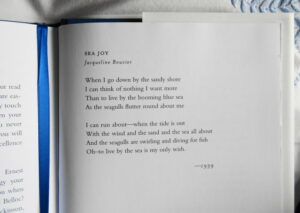
Sure, Ernest Hemingway was no poet, but that doesn’t mean he didn’t read poets or lack opinions on poetry in general. While reading the third volume of The Letters of Ernest Hemingway (Cambridge University Press), I came across this amusing aside written in a letter to Ernest Walsh on 15 January 1926:
“And finally I don’t think that good writing or good poetry has anything to do with our age at all — makes no bloody difference…
“To me it’s not a question of Keats and Shelley having been great and we having changed since then and needing another kind of greatness. I could never read Swinburne, Keats or Shelley. I tried it when I was a kid and simply felt embarrassed by their elaborate falseness. But of real poetry, true poetry, there has always been, rymed (sic) and unrymed (sic), a very little in all ages and all countries —. That’s another large statement. I don’t know about all countries etc. All I can say is that I believe there has always been good poetry and with a little luck there will always be a little. But there won’t be a hell of a lot.”
What, exactly, are examples of good poetry to the 26-year-old Hemingway? In the same letter, he cites “Andy” (as he calls him) Marvell’s “To His Coy Mistress” and a couple of poems by the much-revered poet, Anonymous: “O Western Wind, When Wilt Thou Blow” and “I Heard Twa Corbies” (“twa” being anonymous for “two”).
And what can you, gentle reader, take from Hemingway’s frank talk on a trade he didn’t traffic in? That it’s cool to not like revered big shots like Keats and Shelley if their writing does nothing for you. But it’s not cool to make generalizations about poetry as a whole. For every reader from every age, there’s something out there that appeals. You just have to beat the bushes to see what comes out.
Who knows? Maybe a corbie or twa.

